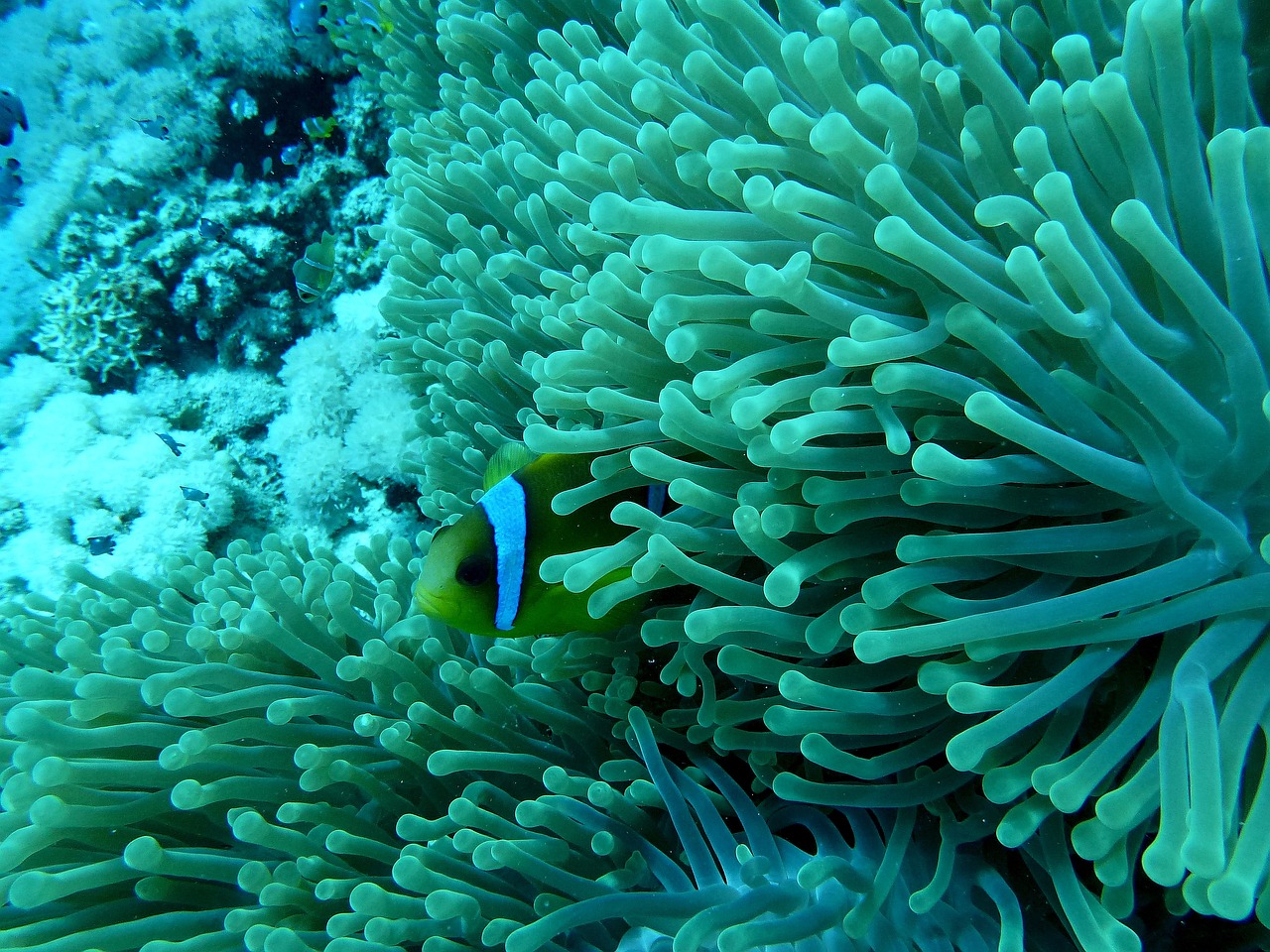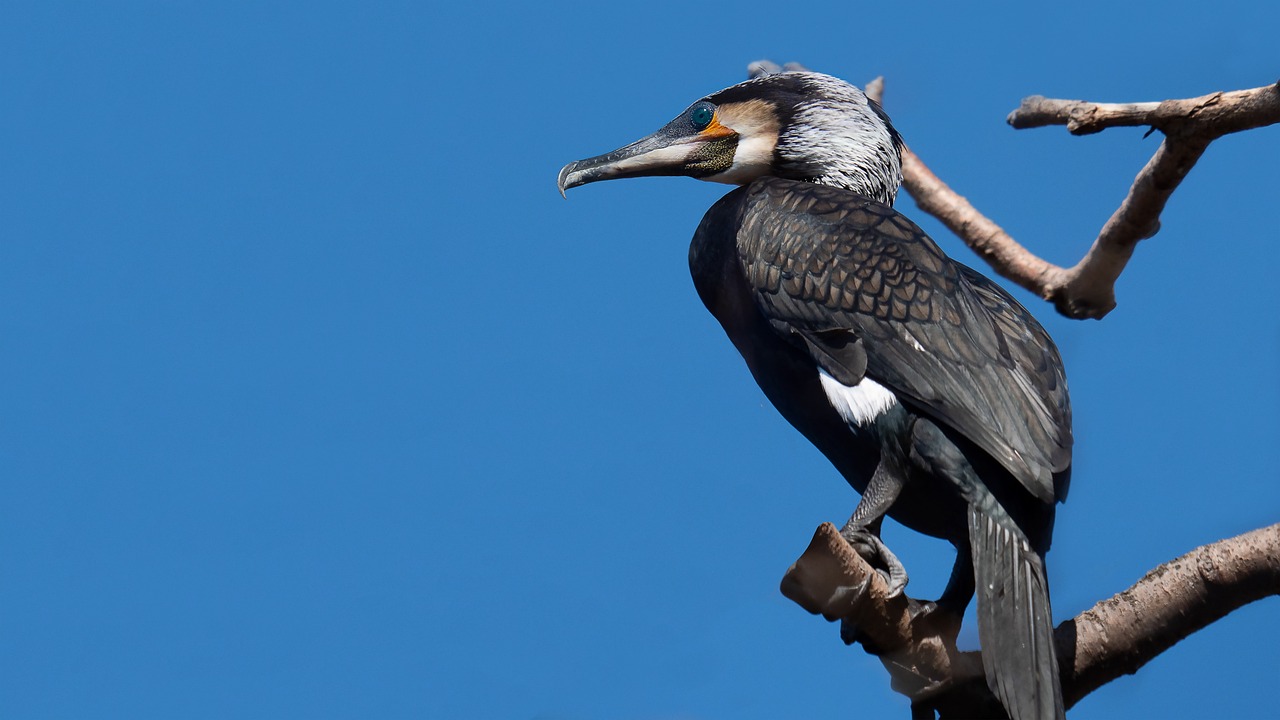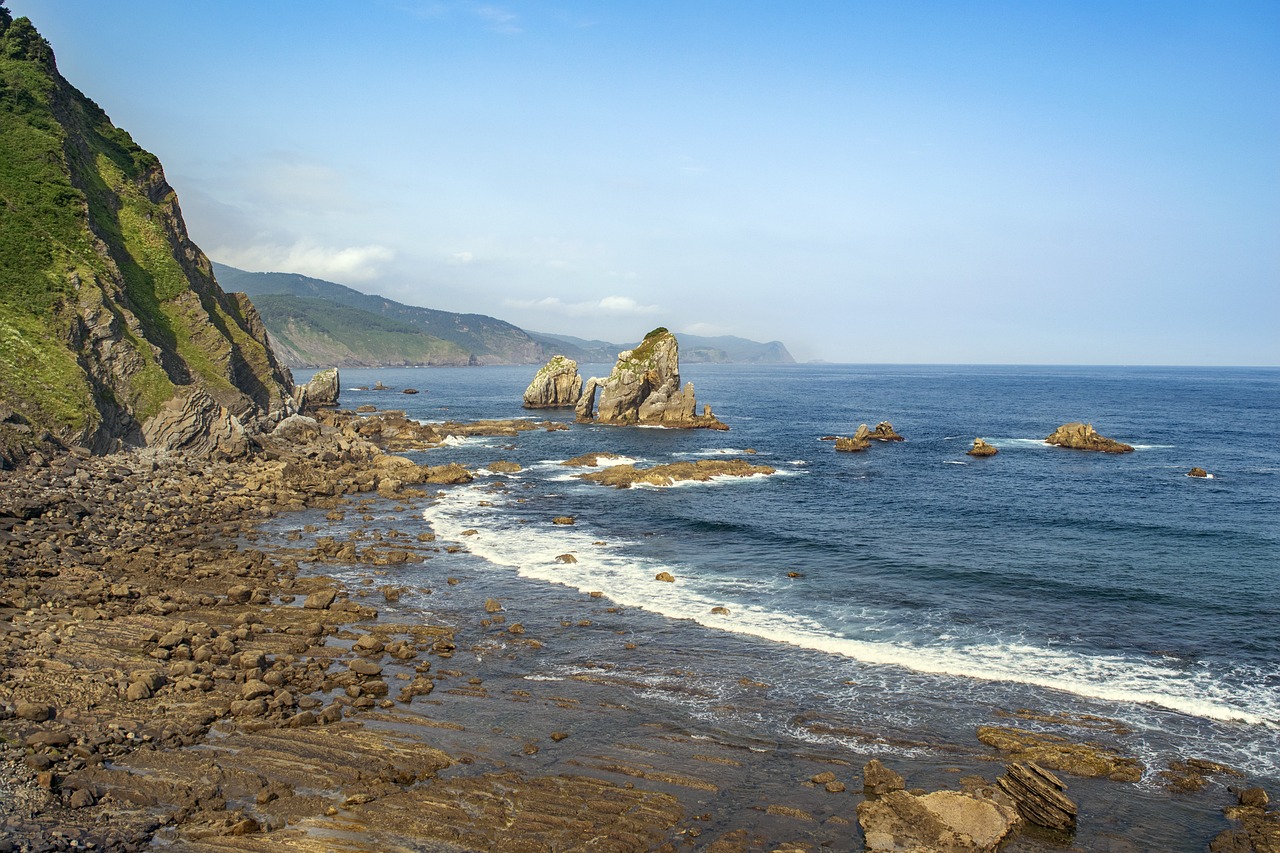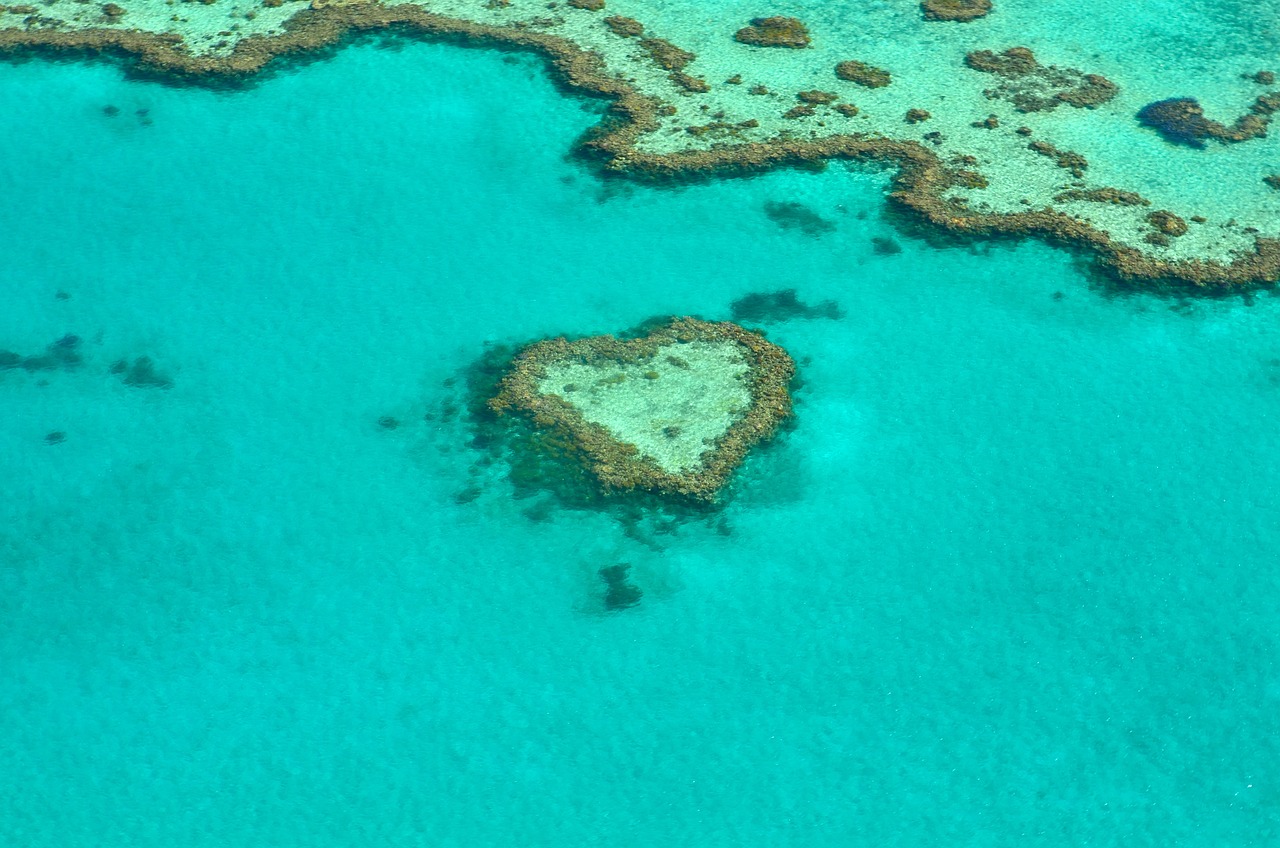Eco-Friendly Tips for Visiting the Great Barrier Reef
When planning a visit to the Great Barrier Reef, it's essential to adopt eco-friendly practices that help preserve this natural wonder for future generations. By following sustainable tips and engaging in responsible tourism, you can minimize your environmental impact and contribute to the conservation efforts aimed at protecting the reef's fragile ecosystem.
One crucial step towards eco-conscious tourism is choosing reef-safe sunscreen. Opt for products that are free of harmful chemicals like oxybenzone and octinoxate, as these ingredients can cause damage to the delicate coral reefs. By selecting environmentally friendly sunscreen, you can enjoy the sun while protecting the marine life beneath the waves.
Respecting marine life is another key aspect of sustainable travel. When observing underwater creatures, maintain a safe distance, refrain from touching or feeding them, and resist the urge to collect shells or corals as souvenirs. Remember, these natural treasures are vital components of the reef's ecosystem and should be left undisturbed.
Reducing waste is a fundamental principle of eco-friendly tourism. Bring along reusable water bottles, bags, and utensils to minimize single-use plastic consumption. By saying no to disposable items, you can help prevent littering and pollution in the reef environment, ensuring its long-term health and beauty.
Supporting eco-friendly tour operators is another way to make a positive impact during your visit. Choose companies that prioritize sustainability, environmental education, and responsible practices. By selecting tours that align with your values, you can contribute to the ongoing conservation efforts on the Great Barrier Reef.
When engaging in snorkeling or diving activities, practice responsible behavior to protect the reef's delicate ecosystem. Follow designated paths, avoid standing on or touching the coral, and be mindful of your movements to prevent accidental damage. By respecting the underwater environment, you can help preserve its natural beauty for future generations to enjoy.
Proper waste disposal is crucial for maintaining the cleanliness of the reef. Use designated bins and recycling facilities on boats or islands to dispose of trash responsibly. Avoid littering or leaving any waste behind, as even small actions can have a significant impact on the health of the reef ecosystem.
Educating yourself about the Great Barrier Reef's ecosystem is key to understanding its significance and the challenges it faces. Learn about the diverse marine life, the importance of coral reefs, and the threats posed by climate change and human activities. By gaining knowledge, you can develop a deeper appreciation for the reef and become a more effective advocate for its protection.
Participating in conservation activities offers a hands-on way to contribute to the preservation of the Great Barrier Reef. Join beach clean-ups, coral planting initiatives, or educational programs to actively engage in conservation efforts. By taking part in these activities, you can make a tangible difference in safeguarding this natural treasure for future generations.

Choose Reef-Safe Sunscreen
When visiting the Great Barrier Reef, one of the essential steps towards responsible tourism is to . By opting for sunscreen products that are free of harmful chemicals like oxybenzone and octinoxate, you can play a crucial role in protecting the delicate coral reefs from potential damage caused by these ingredients. These chemicals have been found to contribute to coral bleaching and harm marine life, making it imperative to select reef-friendly alternatives that are safe for the environment.

Respect Marine Life
When exploring the mesmerizing underwater world of the Great Barrier Reef, it is crucial to and their natural habitat. Imagine being a guest in someone else's home – you would want to be courteous and mindful of their space, right? The same principle applies when encountering the diverse marine creatures that call the reef home.
One of the fundamental rules of interacting with marine life is to observe from a safe distance. While it can be tempting to get up close for a perfect photo or a thrilling experience, remember that marine animals are wild and should not be disturbed. Admire their beauty and grace from afar, allowing them to go about their daily lives undisturbed.
Additionally, it is essential to avoid touching or feeding marine animals when snorkeling or diving in the reef. Feeding wildlife can disrupt their natural behaviors and diet, leading to potential harm. Similarly, touching marine creatures can not only stress them but also pose a risk to your safety, as some species may have defensive mechanisms that could cause harm.
Furthermore, never remove any shells, corals, or other natural souvenirs from the reef. While it may be tempting to take a piece of the reef home as a memento, doing so can have detrimental effects on the ecosystem. Corals provide homes and protection for numerous marine species, and removing them can disrupt the delicate balance of the reef.
In essence, practicing respect for marine life is about coexisting harmoniously with the incredible creatures that inhabit the Great Barrier Reef. By following these guidelines and showing consideration for the underwater world, you can contribute to the preservation and sustainability of this extraordinary natural wonder.

Use Reusable Items
When visiting the Great Barrier Reef, one of the most impactful ways to reduce your environmental footprint is by using reusable items. By opting for reusable water bottles, bags, and utensils, you can significantly cut down on single-use plastics that often end up polluting the delicate marine ecosystem. Imagine each piece of plastic you refuse as a shield protecting the reef from harm, allowing it to thrive in its natural beauty.
Moreover, bringing your own reusable items not only minimizes waste but also sets a positive example for others to follow. It showcases a commitment to sustainability and responsible tourism, inspiring fellow travelers to make eco-friendly choices as well. It's like planting seeds of change with every reusable item you use, nurturing a culture of conservation that benefits the Great Barrier Reef and its inhabitants.

Support Eco-Friendly Tour Operators
When it comes to exploring the wonders of the Great Barrier Reef, choosing to support eco-friendly tour operators can make a significant difference in preserving this marine ecosystem. By selecting tour companies that prioritize sustainability and environmental conservation, visitors can ensure that their journey not only leaves a positive impact but also contributes to the long-term protection of the reef.
Supporting eco-friendly tour operators means aligning your values with those of the companies you choose to travel with. These operators often implement practices that minimize their environmental footprint, such as using fuel-efficient boats, reducing waste generation, and supporting local conservation initiatives. By opting for these responsible tour companies, you can be confident that your visit is contributing to the overall health and sustainability of the Great Barrier Reef.
Moreover, eco-friendly tour operators often offer educational opportunities for visitors to learn about the reef's ecosystem, the importance of conservation, and how they can actively participate in efforts to protect this natural wonder. These tours go beyond mere sightseeing and provide a deeper understanding of the challenges facing the Great Barrier Reef, empowering visitors to become advocates for its preservation.

Practice Responsible Snorkeling and Diving
When it comes to exploring the underwater wonders of the Great Barrier Reef through snorkeling and diving, it's crucial to practice responsible and sustainable behaviors. Imagine diving into a world filled with vibrant coral reefs, colorful fish, and majestic marine creatures – it's like entering a mesmerizing realm where every movement can have a significant impact. Just like treading lightly in a delicate garden, your actions underwater should be gentle and mindful to preserve the beauty and health of the reef ecosystem.
Responsible snorkeling and diving start with respecting the natural environment you are privileged to visit. Think of it as entering someone's home – you wouldn't want to disrupt or damage their belongings, right? Similarly, when exploring the Great Barrier Reef, avoid standing on or touching the coral at all costs. These ancient structures are fragile and can take decades to recover from even the slightest disturbance. By floating effortlessly above the reef and admiring its beauty from a distance, you can ensure that your presence leaves no harmful traces behind.
Another essential aspect of responsible underwater exploration is being mindful of your movements. Picture yourself as a graceful dancer gliding through the water, aware of every step you take. By moving slowly and purposefully, you can prevent accidental damage to the reef and its inhabitants. Remember, the reef is a bustling community where every creature plays a vital role – your movements should harmonize with this underwater symphony, not disrupt it.
Furthermore, following designated paths while snorkeling or diving is crucial for protecting the delicate balance of the reef ecosystem. Just like staying on a hiking trail to preserve the natural landscape, sticking to established routes underwater helps minimize the impact of human activity on the reef. By respecting these boundaries and guidelines, you contribute to the conservation efforts aimed at safeguarding this marine paradise for future generations to enjoy.
In essence, practicing responsible snorkeling and diving is about becoming a guardian of the underwater realm, a protector of the Great Barrier Reef's unparalleled beauty. By embracing sustainable behaviors, respecting marine life, and treading lightly in this fragile ecosystem, you can make a positive difference and ensure that your underwater adventures contribute to the preservation of this natural wonder.

Dispose of Waste Properly
When visiting the Great Barrier Reef, one of the most crucial practices to uphold is the proper disposal of waste. Your responsibility as a visitor extends to maintaining the cleanliness and integrity of this marine ecosystem. By utilizing designated waste bins and recycling facilities available on boats or islands, you can ensure that your waste does not harm the delicate balance of the reef. Remember, even small items like plastic wrappers or bottles can have a significant impact on the environment if not disposed of correctly.

Learn About the Reef's Ecosystem
The Great Barrier Reef is not just a stunning natural wonder but also a complex and diverse ecosystem that supports a myriad of marine life. Understanding the reef's ecosystem is crucial for visitors to appreciate its significance and fragility. Imagine the reef as a bustling underwater city, where each resident plays a vital role in maintaining the balance of this vibrant community. From the colorful corals to the majestic marine creatures, every component of the ecosystem is interconnected, creating a delicate web of life.
By learning about the Great Barrier Reef's ecosystem, visitors can gain a deeper appreciation for the intricate relationships that exist within this underwater world. Picture the reef as a living organism, where each species contributes to its overall health and resilience. From tiny plankton to massive whales, every creature has a part to play in sustaining the ecosystem's vitality. Exploring the reef's biodiversity is like unraveling a captivating mystery, where every discovery unveils a new layer of complexity and beauty.
One way to enhance your understanding of the reef's ecosystem is by joining guided tours or educational programs led by knowledgeable marine experts. These experiences can provide valuable insights into the interconnectedness of the reef's inhabitants and the challenges they face. Imagine embarking on a journey of discovery, where each revelation deepens your connection to the reef and ignites a passion for its protection.
Furthermore, educating yourself about the threats posed to the Great Barrier Reef, such as climate change, pollution, and overfishing, can empower you to become a proactive advocate for conservation. Visualize yourself as a guardian of the reef, armed with knowledge and determination to safeguard this precious ecosystem for future generations. By learning about the reef's ecosystem, you not only enrich your own experience but also contribute to the ongoing efforts to preserve this natural treasure.

Participate in Conservation Activities
Participating in conservation activities is a meaningful way to contribute to the preservation of the Great Barrier Reef. By actively engaging in initiatives aimed at protecting this marine ecosystem, visitors can make a positive impact and support ongoing conservation efforts. One of the ways to get involved is by joining beach clean-up events organized by local conservation groups or tour operators. These activities not only help in removing litter and debris from the reef but also raise awareness about the importance of keeping the marine environment clean and healthy.
Another way to participate in conservation activities is by taking part in coral planting initiatives. Coral reefs are vital ecosystems that face threats such as coral bleaching and habitat destruction. By assisting in the restoration of coral reefs through planting new coral fragments, visitors can directly contribute to the reef's recovery and resilience. These hands-on experiences provide a unique opportunity to learn about coral reef conservation and the challenges it faces.
Additionally, educational programs offered by marine conservation organizations can offer valuable insights into the ecosystem of the Great Barrier Reef. Through guided tours, workshops, and presentations, visitors can deepen their understanding of the reef's biodiversity, the importance of conservation, and the role individuals can play in protecting marine environments. By learning about the threats facing the reef, such as climate change and pollution, participants can become advocates for sustainable practices both during their visit and in their everyday lives.
Frequently Asked Questions
- What is the importance of using reef-safe sunscreen?
Using reef-safe sunscreen is crucial to protect the delicate coral reefs from harmful chemicals like oxybenzone and octinoxate, which can cause damage to the marine ecosystem. By choosing sunscreen that is free of these ingredients, you can help preserve the health and biodiversity of the Great Barrier Reef.
- How can I support conservation efforts during my visit to the Great Barrier Reef?
You can support conservation efforts by participating in eco-friendly activities such as beach clean-ups, coral planting initiatives, or educational programs. Additionally, choosing tour operators that prioritize sustainability and environmental education can ensure that your visit has a positive impact on the reef.
- Why is it important to practice responsible snorkeling and diving?
Practicing responsible snorkeling and diving is essential to protect the fragile reef ecosystem. By following designated paths, refraining from touching or standing on the coral, and being mindful of your movements, you can help minimize damage and preserve the natural beauty of the Great Barrier Reef for future generations.



















